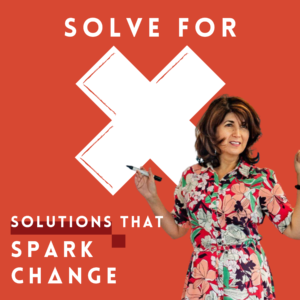Welcome back to Solve for X: Solutions that Spark Change! In this thought-provoking discussion, the two peace pioneers talk through the power of controlling our interactions with others and why negativity in relationships is notoriously contagious. They’ll also dive into the topic of happiness and how we can create and spread our own happiness to those around us, as well as the importance of having a powerful growth mindset to solve problems rather than relying on others to find solutions.
References
Sponsored by Game Design Thinking
Taylor Kinney, Los Salseros de Stanford
Peace Innovation Lab at Stanford
Culture around putting others first
Value of failure in Silicon Valley
The story of Fairchild Semiconductors
Shownotes
This time Mark Nelson and Margarita Quihuis discuss the power of co-committed relationships and growth mindsets to propel you to progress even in the face of failure. And remember to register for our Game Design Thinking course!
Many mental hurdles come from victim consciousness and feeling that events and problems in your life are outside of your control. Coupled with a fixed mindset, it can often be difficult to focus on growth, finding solutions and setting realistic goals.
The first step is focusing on yourself and what you can control, especially in your relationships. Being co-committed not only puts less stress on you and less tension in the partnership, but also makes it easier for your co-workers, partners and friends to collaborate with and reciprocate you. Mark and Margarita took the long way around to co-commitment after years of co-dependent effort while starting the Peace Innovation Lab at Stanford.
This summer they even started designing their own workplace culture around a network of co-committed relationships among their first group of PeaceX interns. Oftentimes when startups can’t manage to turn a profit, the partnerships survive and move on to improved ventures.
Once you know where you’re coming from, it’s easier to pursue your goals even when you fall short. Especially in Silicon Valley where a lot of innovation is all-or-nothing, every failure is a learning opportunity and a step towards a better product. Innovating based on hope makes it easier to create products that are more than profitable. They can be desirable, sustainable and philanthropic to create a world of abundance and justice for everyone.
Check out the full episode for more on:
- The benefits of relational happiness
- How to better design co-committed relationships
- Setting aspirational goals and bringing them to reality
- Dealing with risk and learning from failure
- Profiting from aspiration
And MUCH more!


